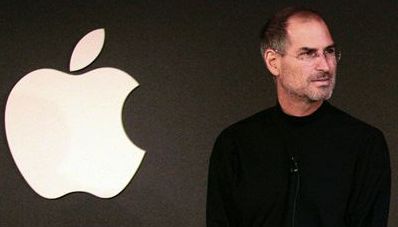

Apple chief executive Steve Jobs will unveil the Mac OS X “Lion,” build, iOS 5 and its highly anticipated iCloud web-based services offering during a keynote address at the Apple Worldwide Developer Conference June 6, the company confirmed.
The news, revealed via a brief press release on 31 May, is a rare preannouncement by a company whose announcements are typically cloaked in secrecy, which caught media and industry analysts by surprise.
However, it is believed that Apple wanted to properly level set expectations after rumours and speculation about the alleged iPhone 5 reached a fever pitch in the past few weeks.
Top tech blogs such as TechCrunch and Daring Fireball assured the world that no new hardware would be unveiled at WWDC, but other, less reliable sources swore an iPhone 5 was indeed part of the mix. The popular blogs won that bet.
Apple promised that at the show, Mac developers will learn how to develop new Mac OS X “Lion” applications, while mobile developers will “be able to explore the latest innovations and capabilities of iOS and learn how to greatly enhance the functionality, performance and design of their apps”.
As interesting and vital as Mac OS X and Apple iOS are to millions of developers, it’s the iCloud service that will get top billing at WWDC.
Apple has been rumored for months to be building a web-based streaming music service to complement iTunes and help the company better compete with hosted consumer services from Google and Apple.
The idea is that consumers would procure music and other web services from Apple’s server clusters. The company even admitted its new data centre in North Carolina was ground zero for its new cloud services.
The Wall Street Journal said that Apple has signed licensing deals with Warner Music Group, Sony Music Entertainment and EMI Group, which will provide music-catalogue access for the iCloud service.
This is a major coup for Apple after Google and Amazon both failed to procure similar agreements for their Google Music and Amazon Cloud Drive digital music lockers.
Apple, the digital music leader for the last decade, should extend its already significant advantage over its rivals, whose services only allow users to download existing music collections, not purchase new music for streaming.
More broadly, iCloud could include web-based digital book and movie service which consumers may sync via Apple Mac desktop computers and laptops, as well as the iOS-based iPhone, iPad and iPod touch. Web-based email also is alleged to be in the iCloud mix to replace the unpopular MobileMe service.
This cloud approach follows the way Google enables users to sync their Google eBooks, Google Music (albeit, in beta) and movies across Android smartphones and tablets.
Ahead of 5 April deadline, Trump is to hold White House meeting over possible investors…
Apple fined 150m euros over App Tracking Transparency feature that it says abuses Apple's market…
OpenAI to release customisable open-weight model in coming months as it faces pressure from open-source…
Samsung's Bespoke AI-powered fridge monitors food to create shopping lists, displays TikTok videos, locates misplaced…
Huawei sees 38 percent jump in consumer revenues as its smartphone comeback continues to gather…
In world-first, China approves commercial flights for EHang autonomous passenger drone, paving way for imminent…